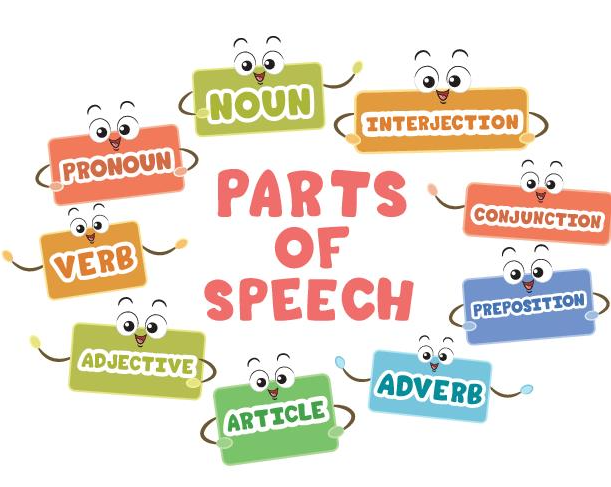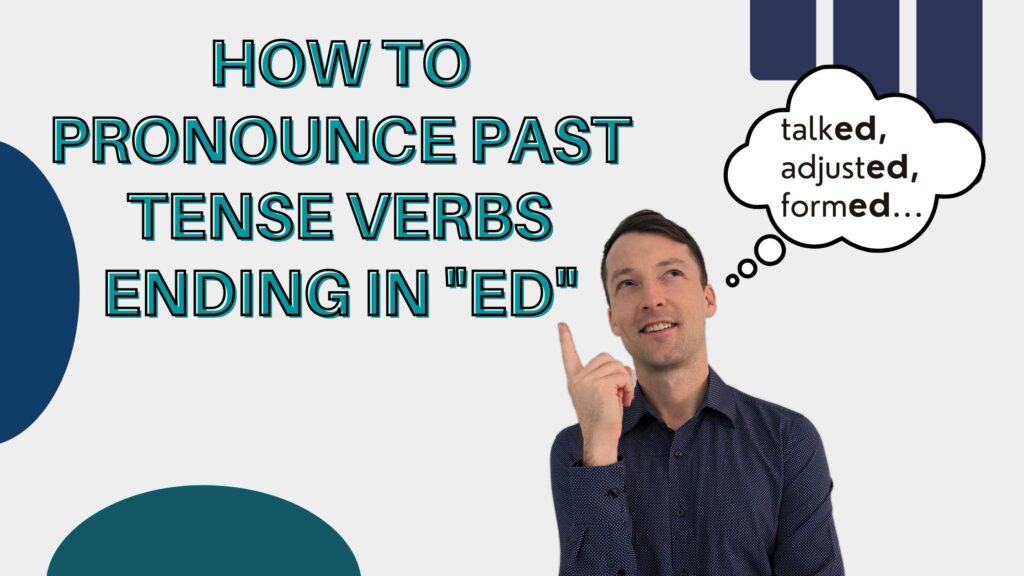Many English words can function as two or more parts of speech. Sometimes even words with similar meanings can function as different parts of speech. In this posting I talk about how this is possible. I give many example sentences. The download at the end will give you additional practice understanding how the same word can function as different parts of speech. Understanding the parts of speech in a sentence is important. How do we determine the parts of speech of words, and how can the same word be more than one of them?
Here is the free English video lesson I taught on YouTube:
Subscribe to our YouTube Channel to see all of our lessons and get the latest videos right away!
How do we determine the parts of speech for each word?
In English, to determine the parts of speech of the words in a sentence, we don’t simply look at the words. We don’t even simply look at the words’ meanings. Instead, we look at the job the words do in the sentence.
What are the jobs in a sentence?
- There are several jobs in all sentences. Every sentence must have a subject. Many sentences also have objects (either direct or indirect object, of objects of prepositions). If a word functions as a subject or an object, it does the job of a noun.
Muslims break their fast (not eating) after sunset during Ramadan. The word fast is a direct object, and thus, a noun.
Many nouns are preceded by an adjective and/or by a determiner (a, an, the, my, your, his, her, its, our, their).
2. Every sentence must have a verb. If a word shows action, it functions as a verb.
Muslims fast (not eating) during the month of Ramadan. In this case, the word fast shows the action of the sentence, so it is a verb. Note that the fast as a noun or verb have basically the same meaning.
3. If a word describes an noun, it functions as an adjective.
My brother likes fast (rapid, with speed) cars. In this case the word fast describes the word cars. This time the word fast functions as an adjective.
Adjectives come before nous or after linking or state of being verbs.
4. If a word describes a verb, and adjective, or an adverb, it is an adverb.
My brother likes to drive fast (rapidly, with speed). In this case the word fast describes the verb, drive. This makes it an adverb. Note that the word fast as an adjective and adverb have essentially the same meaning.
In these examples we have seen how one word, fast, can function as a noun, verb, adjective, or adverb, depending on the job is has to do in the sentence.
Some common words functioning as different parts of speech.
It is impossible to list every English word that can function as different parts of speech. There are too many of them. Below is a list of 15 common, everyday words that you probably use in you daily life. You will see the word, as well as sentences showing how it can be used as different parts of speech.
A-C
- answer
a. noun–The answer to question 2 is B.
b. verb–Answer my question, please.
c. adjective–The teacher has the answer key.
2. brick
a. noun–My house is made of bricks.
b. adjective–I live in a brick house.
3. call
a. noun–He received a call at work.
b. verb–Please call your mother.
4. car
a. noun–Bob Smith drives an old car.
b. adjective–My friend works for a car dealership.
E-L
5. early
a. adjective–I took the early bus to work last Tuesday.
b. adverb–I needed to get to work early.
6. judge
a. noun–The judge sentenced the criminal to life in prison.
b. verb–We asked Martin to judge the art show.
7. late
a. adjective–Sorry, but I’m late again.
b. adverb–Please don’t come to work late.
8. little
a. adjective–That little dog makes a lot of noise.
b. adverb–My grandmother eats very little.
9. play
a. noun–My son was an actor in a play.
b. verb–Most children like to play soccer.
c. adjective–Put on your play clothes after you come home from school.
10. phone
a. noun–Sara bought a new phone last week.
b. verb–I need to phone my boss.
c. adjective–Excuse me; I need to make a phone call.
11. right
a. noun–Freedom is a basic human right.
b. verb–When a turtle is upside down, it often cannot right itself.
c. adjective–I believe that you are the right person for the job.
d. adverb–Turn right when you get to Elm Street.
12. stamp
a. noun–Do you have a stamp for this envelope?
b. verb–Please stamp this letter before you mail it.
13. TV
a. noun– I watched a good show on TV last night.
b. adjective–We bought a new TV set on sale from Walmart.
14 .well
a. noun–They drilled a well to get oil out of the ground.
b. adverb–Rosa did her job well.
15. work
a. noun–My work is stressful, but interesting.
b. verb–She works for a multi-national company.
c. adjective–When I garden, I wear my work clothes.




